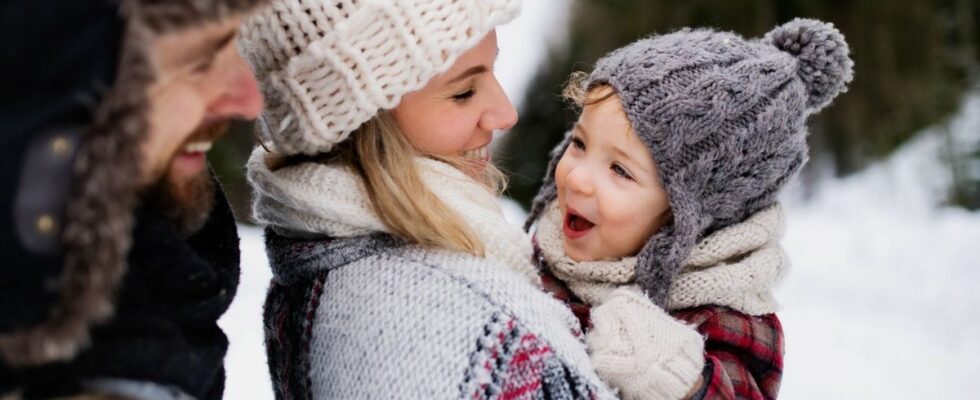Published on
updated on
Reading 2 min.
in collaboration with
Dr Gérald Kierzek (Medical Director)
France is experiencing its first episode of intense cold with the establishment of an orange “snow, ice and wind” vigilance in around thirty departments. But what are the risks of the cold for our health? We asked Dr Gérald Kierzek the question.
The first cold wave of the season hit France, with the passage of storm Caetano. The phenomenon is not very surprising in November, but it is an opportunity to remember the impact of the cold on our health.
Small temperature differences that cause big changes
“We are warm-blooded animals, our body is in fact always at the same temperature… around 37° C” first explains Dr Gérald Kierzek, emergency doctor and medical director of Doctissimo.
“All mammals (including humans) are homeothermic. This means that body temperature is kept constant despite external stress due to heat or cold.”
This maintenance is essential for the proper functioning of human metabolism. “Even small deviations can cause significant changes in the body“calls the doctor back.”For example, metabolism stops when body temperature is too low. The vessels tighten at the periphery, so that the heat is concentrated towards the interior of the body..
What are the risks for our health when it is cold?
According to the doctor, the cold can weaken our body in different ways.
On the cardiovascular level, the cold will increase the risks:
On the pulmonary level, there is also:
- A worsening of asthma and chronic bronchitis;
- Of the respiratory infections delayed;
Without forgetting the other risks, namely:
- THE falls and trauma, due to snow and ice, particularly among the elderly;
- THE carbon monoxide poisoningcaused by the use of defective heating appliances;
- THE hypothermiaTHE frostbite…
Who are the most vulnerable people to the cold?
According to our emergency doctor, the most vulnerable people are children, the elderly, the chronically ill and people in precarious situations.
“Mortality increases almost linearly as temperature decreases, with an impact that can be felt up to 30 days after a cold snap. he insists.
What are his prevention tips?
- Avoid going out during periods of very cold weather and adapt your activity gradually, respecting in particular the adaptation time necessary for the body to “warm up”;
- Limit major efforts: do not run, shovel, clear snow, change a wheel, etc. Do not hesitate to ask for help;
- Cover yourself warmly, especially your extremities (head, hands, feet);
- Use waterproof clothing and wear several layers of clothing;
- Don’t forget your treatments (like bronchodilators for asthmatics, etc.).
Finally, if you travel by car, “always plan for the risk of getting stuck, by having cover – preferably survival – medicine and food” he concludes.

